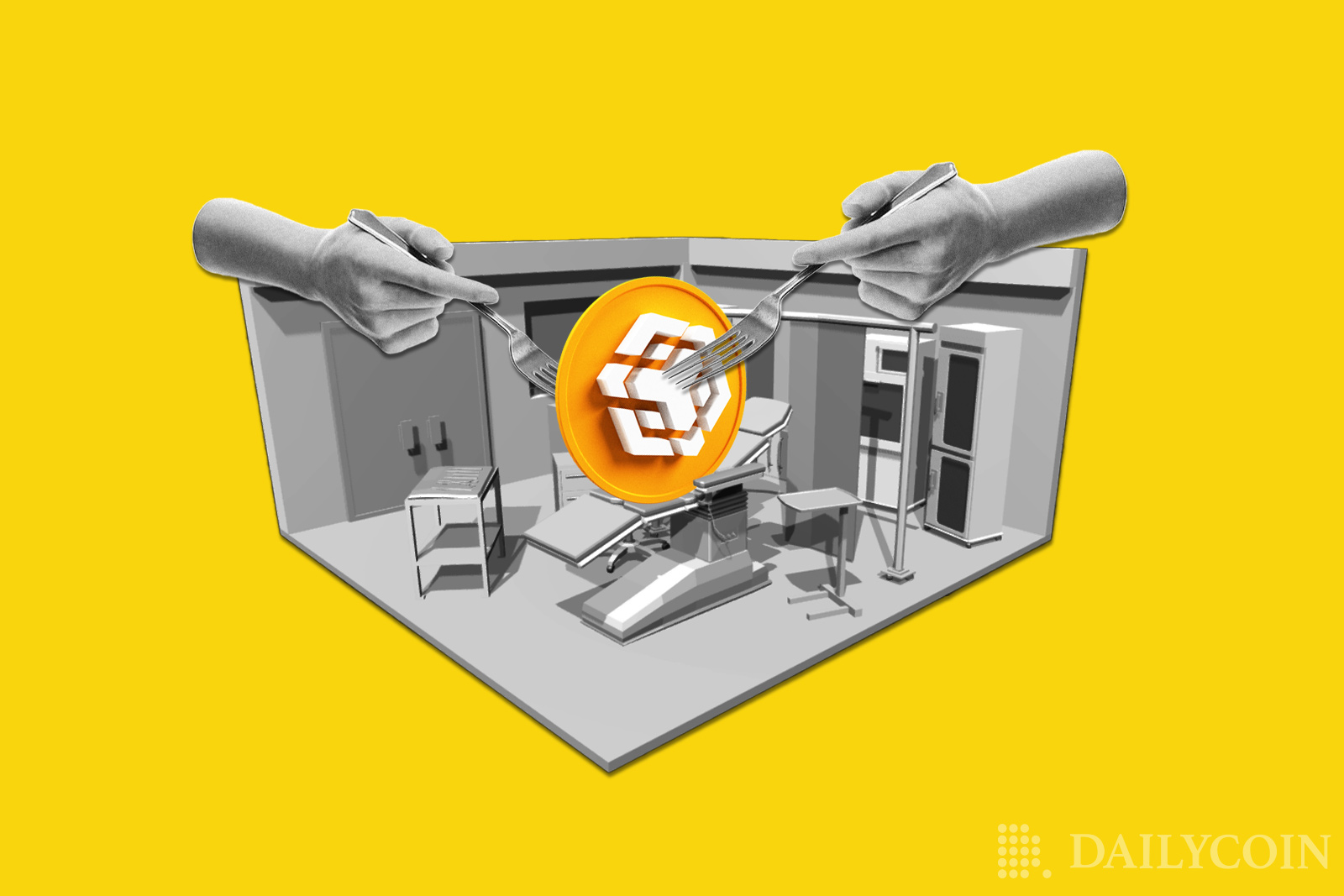
According to a GitHub post by the BNB Chain development team, the BNB Chain has undergone a hard fork as a fix for the October 6th exploit which saw the platform drained of $100 million.
#Binance will support the #BNB Smart Chain (BEP20) Network Upgrade & Hard Fork.https://t.co/54wVn1RxMk
— Binance (@binance) October 11, 2022
A post from Binance, the parent company behind BNB Chain, affirmed that the network will support the hard fork, and will suspend all deposit and withdrawal options on the BNB Chain an hour before the update is scheduled to take place. Operations will recommence once the upgraded network is considered stable.
Sponsored
BNB Chain describes the recent upgrade as a “temporary urgent patch to mitigate the cross-chain infrastructure between Beacon Chain and Smart Chain.”
Hard Fork “Moran” to Improve the BNB Chain
The term “hard fork” refers to a divergence between the previous and newest versions of a blockchain, thereby creating a permanent difference.
When a new rule is added to the code, it effectively forks the blockchain; one path will follow the new, upgraded blockchain, while the other continues to use the original. In order to maintain consensus, the two versions of the network are run separately thereafter.
Sponsored
Simply put, a hard fork is an upgrade intended to improve a blockchain.
The BNB Chain hard fork in question, dubbed “Moran,” was projected to take place on October 12th, 08:00 UTC, at a block height of 22,107,423. The changes include fixing a vulnerability in the iavl hash check, and the introduction of a block header in sequence checks to reduce error rates.
The hard fork represents part of an attempt to reinstate the cross-chain in order to prevent similar malicious attacks from taking place before developers can permanently resolve the issue.
Despite the fork not affecting regular users, node operators will be required to halt their existing nodes and replace them with new ones.
A security loophole in BNB Chain’s cross-chain bridge saw its operations grind to a halt on October 6th, resulting in the theft of $100 million in cryptocurrency. According to BNB Chain, the exploit created “extra BNB” on the BSC Token Hub. Operations resumed on October 7th.
On the Flipside
- On on October 6th, a bug in the verification process caused a cross-chain breach between the BNB Beacon Chain (BEP2) and the BNB Smart Chain (BEP20 or BSC). In terms of the cause, there are a multitude of reasons for why blockchain bridges may face any given vulnerability. As the industry moves forward, experts urge developers to observe the recent upgrades to the BNB Chain in order to determine its effectiveness in preventing future attacks.
Why You Should Care
- Hard forks can play an important role in fixing the loopholes that left a network vulnerable to attacks.
- Additionally, hard forks can invalidate the transactions carried out by an attacker from a specified date.
You can read about more about the BNB Chain in the following articles:
Web3 Platform LiveArt Brings World-leading Arts and Culture to BNB Chain
BNB Chain Partners with Google Cloud to Boost Growth of Web3 and Blockchain Project
